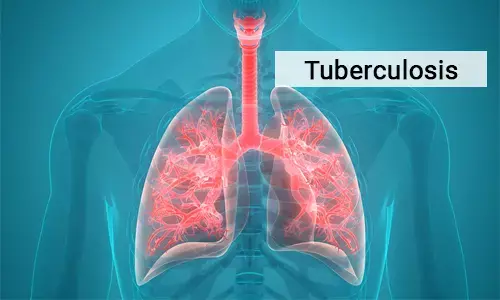- Home
- Medical news & Guidelines
- Anesthesiology
- Cardiology and CTVS
- Critical Care
- Dentistry
- Dermatology
- Diabetes and Endocrinology
- ENT
- Gastroenterology
- Medicine
- Nephrology
- Neurology
- Obstretics-Gynaecology
- Oncology
- Ophthalmology
- Orthopaedics
- Pediatrics-Neonatology
- Psychiatry
- Pulmonology
- Radiology
- Surgery
- Urology
- Laboratory Medicine
- Diet
- Nursing
- Paramedical
- Physiotherapy
- Health news
- Fact Check
- Bone Health Fact Check
- Brain Health Fact Check
- Cancer Related Fact Check
- Child Care Fact Check
- Dental and oral health fact check
- Diabetes and metabolic health fact check
- Diet and Nutrition Fact Check
- Eye and ENT Care Fact Check
- Fitness fact check
- Gut health fact check
- Heart health fact check
- Kidney health fact check
- Medical education fact check
- Men's health fact check
- Respiratory fact check
- Skin and hair care fact check
- Vaccine and Immunization fact check
- Women's health fact check
- AYUSH
- State News
- Andaman and Nicobar Islands
- Andhra Pradesh
- Arunachal Pradesh
- Assam
- Bihar
- Chandigarh
- Chattisgarh
- Dadra and Nagar Haveli
- Daman and Diu
- Delhi
- Goa
- Gujarat
- Haryana
- Himachal Pradesh
- Jammu & Kashmir
- Jharkhand
- Karnataka
- Kerala
- Ladakh
- Lakshadweep
- Madhya Pradesh
- Maharashtra
- Manipur
- Meghalaya
- Mizoram
- Nagaland
- Odisha
- Puducherry
- Punjab
- Rajasthan
- Sikkim
- Tamil Nadu
- Telangana
- Tripura
- Uttar Pradesh
- Uttrakhand
- West Bengal
- Medical Education
- Industry
Shorter TB treatment regimen as effective as longer course: CDC Study

USA: A four-month daily treatment containing high-dose rifapentine with moxifloxacin is as effective as the currently recommended six-month daily regimen for the treatment of pulmonary tuberculosis (TB), suggests a recent study. The regimen is the first successful short-course treatment regimen for drug-susceptible TB disease in almost 40 years.
TB is one of the most global health problems worldwide. According to recent estimates from the World Health Organization, 10 million new TB cases and 1.4 million deaths from TB occurred globally in 2019.
Phase 3, open-label trial, called Study 31/A5349, was conducted by the US Centers for Disease Control (CDC) and Prevention's Tuberculosis Trials Consortium (TBTC), in collaboration with the AIDS Clinical Trials Group (NIAID). The results of the study were presented at the virtual Union World Conference on Lung Health held virtually from October 20-24, 2020, and have been submitted for publication.
The study is the largest drug-susceptible TB disease treatment trial that CDC or NIAID has ever conducted, with more than 2,500 participants ages 12 and older enrolled at 34 clinical sites in 13 count. The study compared the efficacy and safety of the standard 6-month TB regimen, which consists of isoniazid, rifampin, ethambutol, and pyrazinamide for 2 months followed by 4 months of isoniazid and rifampin to 1 of the following treatment regimens: 1) Eight weeks of daily treatment with rifapentine, isoniazid, pyrazinamide, and moxifloxacin and 9 weeks of daily treatment with rifapentine, isoniazid, and moxifloxacin; 2) Eight weeks of daily treatment with rifapentine, isoniazid, pyrazinamide, and ethambutol and 9 weeks of daily treatment with rifapentine and isoniazid.
This new regimen did not meet non-inferiority criteria when compared to the existing standard regimen.
The safety profile for this trial demonstrates that the proportion of patients who experienced adverse events was similar among patients in all three groups of participants (control and the two novel regimen groups). This means that the novel regimens do not pose a greater risk to patients than currently used regimens.
Shortening treatment for TB disease can benefit patients, families, healthcare providers, and health systems. Shorter TB disease treatment regimens can help patients more easily complete treatment for TB disease than they would on the existing standard regimen. This is especially important in the era of COVID-19, which has caused widespread disruptions to care and treatment access for many people with TB disease. The availability of shorter regimens enables patients to be cured faster, and has the potential to reduce treatment costs, improve patient quality of life, increase completion of therapy, and reduce the development of drug resistance.
"These robust findings have the potential to change clinical practice by offering people with drug-susceptible TB an additional, shorter-course treatment option that is safe, effective and potentially more convenient," said Carl W. Dieffenbach, PhD, director of the NIAID Division of AIDS. "The Study 31/A5349 trial was completed right on schedule, demonstrating the effectiveness of the collaboration between CDC and NIAID."
Reference:
Landmark TB trial identifies shorter-course treatment regimen. [press release]
Dr Kamal Kant Kohli-MBBS, DTCD- a chest specialist with more than 30 years of practice and a flair for writing clinical articles, Dr Kamal Kant Kohli joined Medical Dialogues as a Chief Editor of Medical News. Besides writing articles, as an editor, he proofreads and verifies all the medical content published on Medical Dialogues including those coming from journals, studies,medical conferences,guidelines etc. Email: drkohli@medicaldialogues.in. Contact no. 011-43720751


